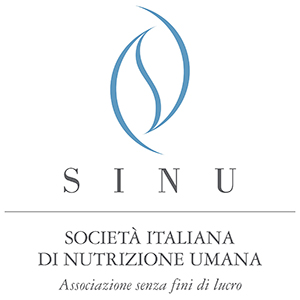 Interview with Dr. Francini, clinic nutritionist and President of the Italian Human Nutrition Society (SINU) – Triveneto
Interview with Dr. Francini, clinic nutritionist and President of the Italian Human Nutrition Society (SINU) – Triveneto
Today we hear about many new types of diet like paleo, raw, etc. The grandmother’s old advice for which a varied and balanced diet is the best, is still a valid advice?
Food, like many other aspects of our lives, has been targeted by consumerism and myriads of more or less bizarre diets, more or less dictated by commercial motivations. Grandma’s old advice is still valid, much more than many modern suggestions and like many other advice from our grandmothers, women who had the skills and the passion, rare today, to know how to cook.
What’s your opinion about the average diet of italians today?
Making a synthetic judgment is difficult because today different models and food trends coexist in Italy. The prevailing model is that of quick meals in the first part of the day (cappuccino and brioche at the bar as breakfast, “salad” or first course at lunch), with the central meal consumed away for work and a home evening meal more rich and with a function of collective ritual that strengthens family ties after a day spent each on their own (work, school). The evening meal also acts as a moment of recovery from stress and this facilitates a caloric intake far superior to the physiological needs.
Purchases of foodstuffs are mainly made in large retailers, with an eye to the quality/price ratio, favoring more the second than the first. The economic difficulties can lead to a qualitative malnutrition, where calories are introduced in huge quantities but are made from low-quality food that, in the long run, can damage health. Young people, on the other hand, tend to identify afternoon and evening hangouts as the main meal of the day. The term “aperidinner” is a recent acquisition of our vocabulary, which, despite its being an horrible word, effectively summarizes the attempt to merge social and alimentary needs, placing them in a single moment, completely outside the domestic sphere.
Finally, there are more elaborate patterns of consumption, motivated by different reasons. We have choices for health (vegetarian, vegan, etc.), gastronomic (typical, regional or ethnic product research) or ethics (fair trade food) reasons.
Can you make it clearer how it is possible to be obese and undernourished at the same time?
Malnutrition can also affect obese subjects for various reasons. This happens, for example, in the course of neoplastic, cardiovascular or respiratory diseases that lead to limit the intake of food or compromise its effective absorption. In these cases the weight of the subject remains high, but the muscular masses and the efficiency of the immune system are reduced, with serious worsening of the patient’s prognosis.
Does it still make sense to talk about a Mediterranean diet?
The Mediterranean diet is a food model, an abstract entity, which in reality is translated into articulated behaviors. Someone, who does not like the reference in positive terms to the Mediterranean area, speaks of a “prudent” diet model, to indicate a diet based on the “products-basket” typical of the Mediterranean diet, made of vegetables, whole grains, olive oil, oily dried fruit, fish, little meat and some wine. This diet is certainly current, because it is able to perform an effective preventive action against the main degenerative diseases that afflict our era. However, there are other food models that have proved equally valid. Of course, for us italians it is the easiest choice to follow and, in my opinion, even the most satisfying from a gastronomic point of view.
Interest in edible insects and products containing them recently exploded. What do you think about, from a nutritional point of view?
From a purely nutritional point of view they are a valid alternative to common foods, as insects are a complete and high quality source of nutrients. The most interesting aspect is the low environmental impact of their production, a major advantage considering the growing need for food sources required by the planetary demographic increase.
Are we witnessing a sort of irreversible “food globalization” that will tend to standardize diets?
Like other aspects of our lives, food consumption is also globalizing. Whether it is good or bad it is difficult to establish and would require long and complicated reasoning. Personally, I see more negative aspects. Globalization is a long-term phenomenon that involves this generation and many others in the future, but I do not think it is irreversible. Even in the food sector, variety is part of beauty and gives taste to life, so I think that local differences should be preserved and studied. Studied as history is studied, because food is a vehicle of historical culture. We could say that those who ignore their food tradition can not really know the present one.





